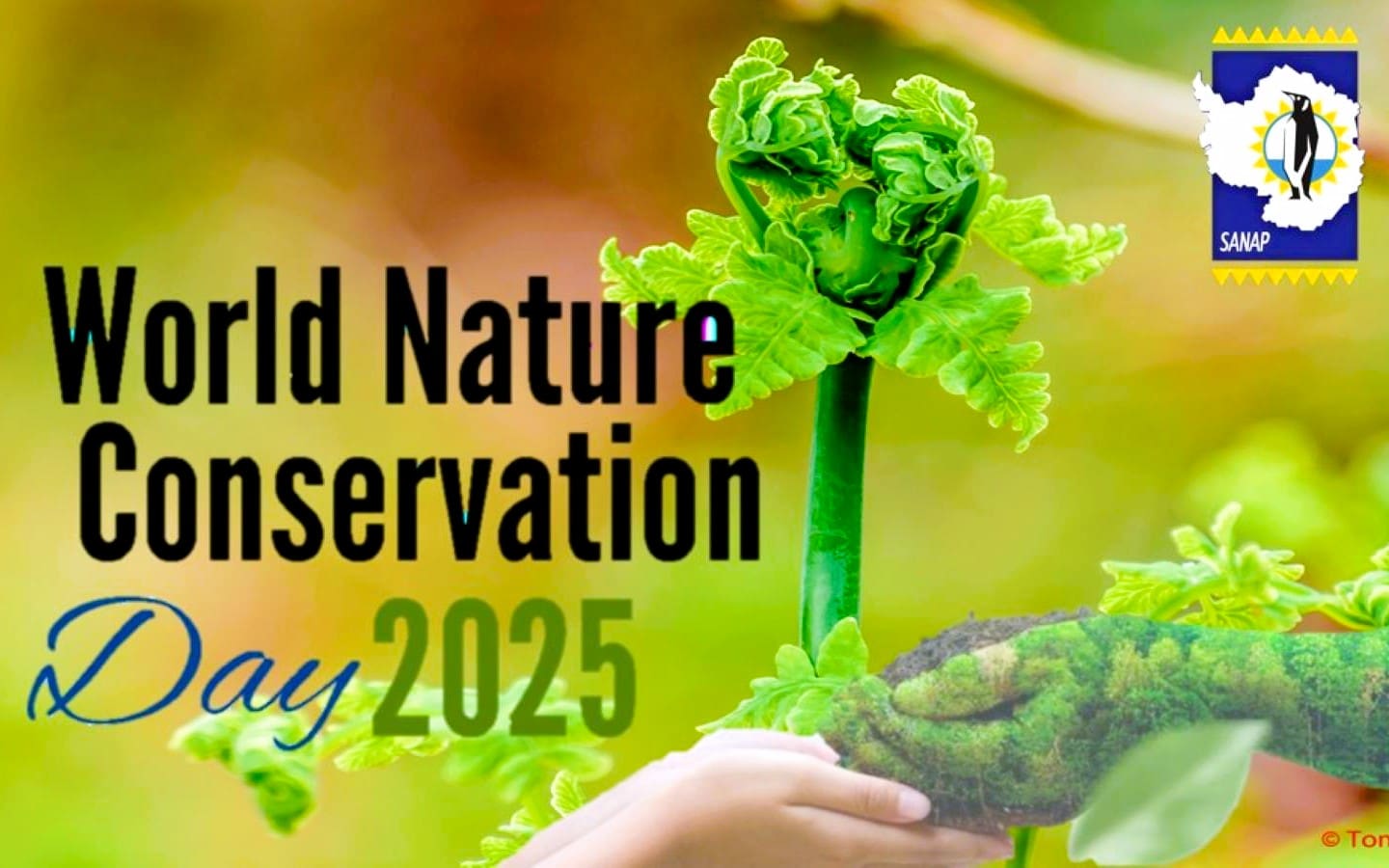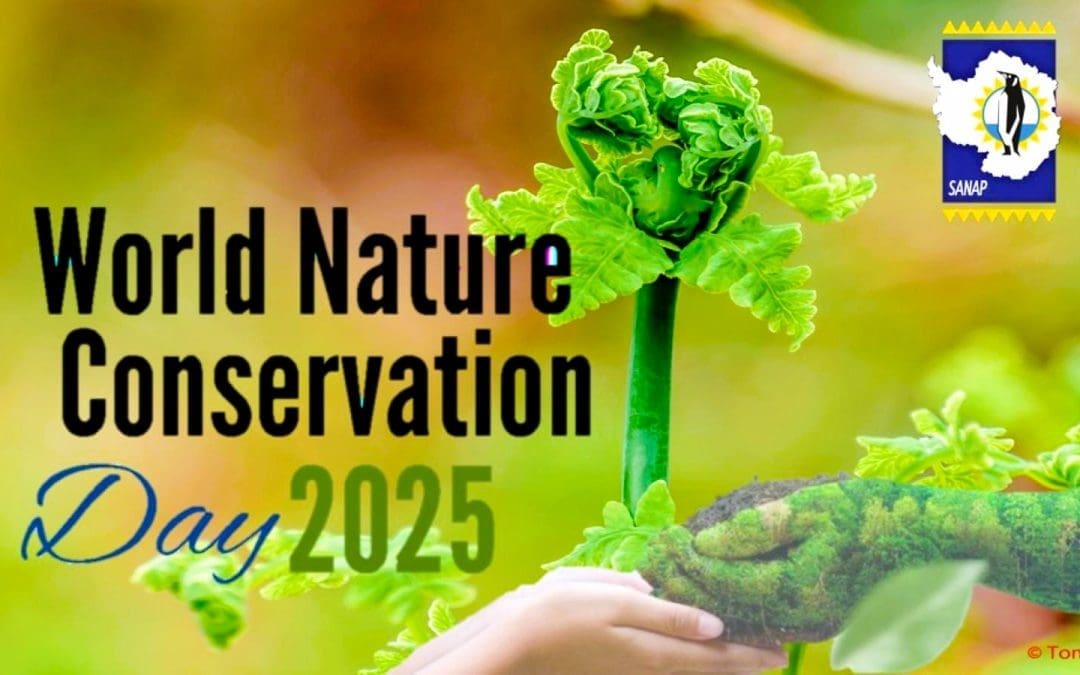“Protect Nature, Preserve Life!” | “Act now to save tomorrow!” | “Conserve nature, conserve life.”
Every year on July 28, the world observes World Nature Conservation Day to highlight the critical importance of protecting our natural environment. The 2025 theme calls for urgent action to protect biodiversity, restore degraded ecosystems, and promote global cooperation for a sustainable future. This year, we are reminded that responsible resource use and collective action are not just choices—they are necessities.
 The South African National Antarctic Programme (SANAP) stands at the forefront of conservation and climate science in one of the most extreme environments on the planet—Antarctica, sub-Antarctica and the Southern Ocean. In line with its mission to understand, develop and conserve, SANAP plays a vital role in safeguarding this unique and fragile region. Antarctica, often referred to as a “living laboratory,” is the coldest, windiest, and driest place on Earth. Yet, it holds clues to the past and future of our global climate. The research conducted through SANAP is crucial—not just for understanding regional ecosystems—but for decoding the signals of global environmental change.
The South African National Antarctic Programme (SANAP) stands at the forefront of conservation and climate science in one of the most extreme environments on the planet—Antarctica, sub-Antarctica and the Southern Ocean. In line with its mission to understand, develop and conserve, SANAP plays a vital role in safeguarding this unique and fragile region. Antarctica, often referred to as a “living laboratory,” is the coldest, windiest, and driest place on Earth. Yet, it holds clues to the past and future of our global climate. The research conducted through SANAP is crucial—not just for understanding regional ecosystems—but for decoding the signals of global environmental change.
 Why Antarctic Conservation Matters: Despite its remoteness, Antarctica is not isolated from human impacts. Climate change, plastic pollution, resource exploration, and increased human activity threaten the pristine ecosystems of the continent and its surrounding ocean. SANAP recognizes the global and national significance of preserving the Antarctic environment and is committed to protecting both marine and terrestrial ecosystems. Through rigorous scientific research, SANAP contributes to global environmental policy, supports ecosystem integrity, and promotes the sustainable management of natural resources.
Why Antarctic Conservation Matters: Despite its remoteness, Antarctica is not isolated from human impacts. Climate change, plastic pollution, resource exploration, and increased human activity threaten the pristine ecosystems of the continent and its surrounding ocean. SANAP recognizes the global and national significance of preserving the Antarctic environment and is committed to protecting both marine and terrestrial ecosystems. Through rigorous scientific research, SANAP contributes to global environmental policy, supports ecosystem integrity, and promotes the sustainable management of natural resources.
This year’s World Environment Day message—#BeatPlasticPollution— echoes SANAP’s continued vigilance against pollution and environmental degradation. Even the most remote parts of the world, like Antarctica, are not immune to the far-reaching effects of plastic waste and environmental harm.
SANAP’s conservation efforts are not isolated. They form part of a larger, coordinated global response. The challenges of biodiversity loss and ecosystem degradation are too large for any one nation to tackle alone. We must act collectively, across disciplines, borders, and generations. By participating in SANAP’s mission, scientists, policymakers, and citizens alike help preserve Earth’s final frontiers. Our actions today shape the world tomorrow. The work done in the Antarctic does not stay in the Antarctic—it reverberates throughout our shared global environment.
Join Us in the Conservation Movement: On this World Nature Conservation Day, SANAP invites you to reflect on our shared responsibility to protect nature and preserve life. Whether through supporting research, advocating for sustainable policies, or making environmentally conscious choices in our daily lives, each of us plays a role in safeguarding the planet.
Let us act now—for the ecosystems that cannot speak, for the generations still to come, and for the only home we have.
Image : Tom McSherry






